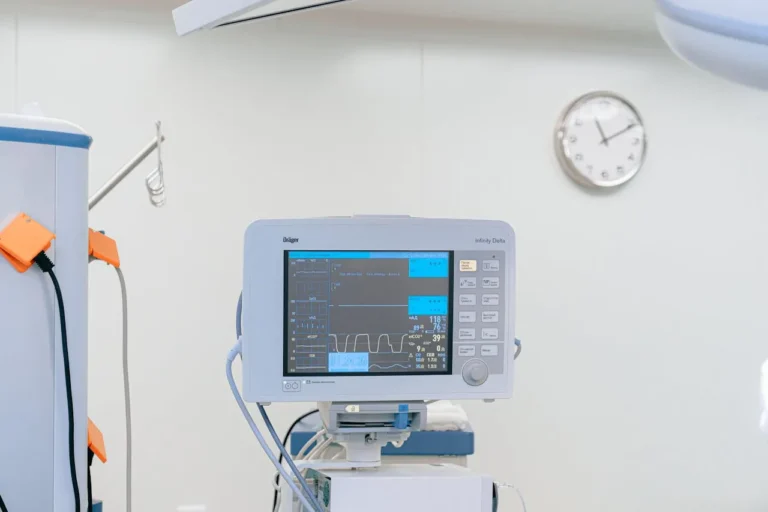
The global transcatheter heart valve market is estimated to witness substantial growth, reaching a projected value of US$ 15.14 Billion by 2030 at a robust compound annual growth rate (CAGR) of 12.73% from 2022 to 2030.
Key Companies Mentioned:
- Edwards Life Sciences
- Abbott Laboratories
- Medtronic Plc
- LIVANOVA PLC
- Boston Scientific Corporation
- Artivion, Inc
- MicroPort Scientific Corporation
- Venus Medtech (Hangzhou) Inc.
Over the past decade, the demand for bio-prosthetic valve implants has been steadily rising, leading to an increasing population of patients in need of reoperation due to valve deterioration. Responding to this growing demand, valve-in-valve transcatheter aortic valve replacement (TAVR) has emerged as a safe and effective alternative to surgery, particularly for higher-risk, inoperable patients. This intricate procedure requires skilled personnel and specialized centers to mitigate the risk of complications compared to TAVR on native valves.
Aortic stenosis, a condition characterized by the incomplete opening of the aortic valve, has driven the need for transcatheter aortic valve implantation. The rising prevalence of aortic stenosis, along with improved surgical techniques and growing demand for surgical technologies, is propelling the transcatheter aortic valve replacement (TAVR) market. The increasing acceptance of TAVI treatments, coupled with new device approvals and a wealth of clinical evidence demonstrating their success, further fuels market demand.
TAVR Dominates the Market:
Transcatheter Aortic Valve Replacement (TAVR) has emerged as the leading procedure in the global medical market, capturing the highest market share. The increasing prevalence of cardiovascular diseases, especially aortic valve disorders, has contributed to the rising demand for TAVR procedures. This minimally invasive technique offers several benefits, such as reduced hospital stay, faster recovery time, and improved patient outcomes. Advancements in TAVR device technologies, along with growing acceptance among healthcare professionals, have further solidified its market dominance. With continuous research, development efforts, and favorable reimbursement landscapes, the TAVR market is poised to maintain significant market share in the foreseeable future.
Rapid Growth of Biological Tissue Market Segment:
Within the Transcatheter Aortic Valve Replacement (TAVR) industry, the biological tissue market is experiencing rapid growth and emerging as the fastest-growing segment. Biological tissue valves, also known as bioprosthetic valves, offer advantages such as improved durability and reduced risk of blood clots compared to mechanical valves. This has led to increased adoption of biological tissue valves in TAVR procedures, particularly among elderly patients requiring valve replacement. Advancements in tissue engineering have further fueled market growth, resulting in the development of more durable and long-lasting biological tissue valves. Ongoing research and technological innovations are expected to drive continued growth in the biological tissue market within the TAVR industry.
ASCs Driving Rapid Expansion:
Ambulatory surgical centers (ASCs) are emerging as the fastest-growing sector within the Transcatheter Aortic Valve Replacement (TAVR) industry. ASCs offer a convenient and cost-effective alternative to traditional hospital settings for performing TAVR procedures. With advancements in medical technology and improved patient outcomes, more TAVR procedures can now be safely conducted in outpatient settings. ASCs provide shorter hospital stays, reduced healthcare costs, and greater accessibility for patients. Additionally, their focus on specialized care and personalized patient experiences attracts more physicians and patients to choose these centers for TAVR procedures, driving rapid expansion.
United States and India Leading the Way:
The United States TAVR industry is experiencing significant growth and innovation, driven by a rising prevalence of aortic valve diseases and an aging population. TAVR has emerged as a preferred alternative to traditional open-heart surgery, supported by advanced medical technologies, a robust healthcare infrastructure, and a favorable reimbursement landscape. Major medical device companies, research institutions, and healthcare providers are actively expanding TAVR procedures, positioning the United States as a global leader in this life-saving procedure.
India’s TAVR industry is also witnessing substantial growth, owing to a large population and increasing prevalence of aortic valve diseases. Government initiatives and favorable reimbursement policies further fuel market expansion, while ongoing research, collaborations with international medical device companies, and technological innovations propel the Indian TAVR industry forward, improving cardiac care in the country.
In conclusion, the global transcatheter heart valve market is set for significant growth, reaching an estimated value of US$ 15.14 Billion by 2030. Factors such as the rising prevalence of valvular heart diseases, increasing demand for minimally invasive procedures, and advancements in surgical techniques contribute to the market’s expansion.
While challenges such as strict regulations for transcatheter aortic valves and high procedure costs persist, opportunities abound through the use of TAVI systems for new indications, increased healthcare spending in emerging economies, and involvement of key players in the global TAVI industry.
Source: https://www.businesswire.com/




